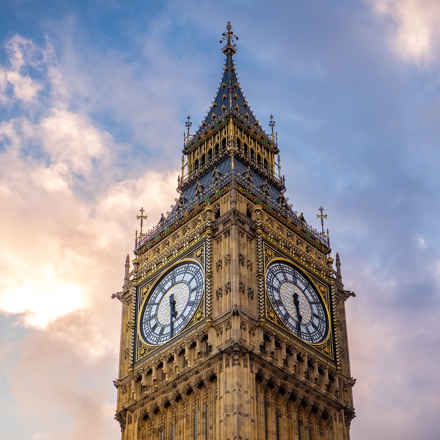Parliament to explore impact of independent sector on NHS eye care
Posted: Wednesday 02 April 2025
A new Early Day Motion (EDM) is set to be introduced in Parliament to examine how independent sector providers are affecting NHS eye care, particularly for people with conditions such as age-related macular degeneration (AMD).
An EDM is a formal request from Members of Parliament (MPs) to highlight important issues and begin discussions in the House of Commons. EDMs are used to record MPs' views, raise awareness about specific issues, and show support for specific causes. If an EDM receives backing from multiple MPs, it could potentially lead to further scrutiny or action on the issue.
Background and context
In recent years, the NHS has seen a sharp increase in the number of cataract surgeries performed by independent providers.
NHS England reports that cataract surgeries rose from 451,000 in 2019-2020 to 676,000 in 2023-2024. While this increase has helped to reduce waiting times for some patients, concerns have been shared about the impact on NHS ophthalmology services, particularly for those needing more complex treatments such as for AMD and glaucoma.
Dr Ben Burton, President of the Royal College of Ophthalmology, said the current system may not be sustainable as some independent providers tend to prioritise simpler procedures, which are quicker, over more complicated and time-consuming treatments.
He said: “It’s been something I think somebody needs to take a step back on and see the bigger picture of.”
MP Dr Peter Prinsley has also shared concerns on the issue.
Dr Burton highlighted how the practice of private clinics selectively performing easier procedures could place a disproportionate burden on the NHS, especially when it comes to more complex conditions.
He said, “While some consultants continue to work in the NHS, the direction of travel is concerning: They are doing less and less in the NHS, with obvious consequences, and more and more in the independent sector in terms of the number of sessions in the week etc and that’s a concern.”
Recent figures show NHS England reporting that 589,508 patients are currently waiting for eye treatment, with nearly 10,000 waiting more than a year. While half of patients begin treatment within 11.5 weeks, delays for more complex cases remain a serious issue.
Patients with AMD are particularly affected by delays as timely treatment is important to prevent irreversible sight loss. Dr Burton highlighted that these delays could lead to long-term damage if not addressed.
Funding for eye care
Another issue being raised is how eye care is funded. The NHS has made changes to how much it pays for different eye procedures. While the funding for cataract surgeries has increased, the payments for more complex treatments have decreased. This has led to questions about whether the current funding model is the best way to meet the needs of all patients.
NHS representatives have stated that they are actively reviewing the impact of the rise in independent providers and are working to ensure that all eye care services remain sustainable and accessible for all patients.
Next steps
The upcoming EDM aims to bring attention to these issues and start a conversation about the NHS and independent sector can work together to better meet patient needs.
If supported, the motion will give policymakers an opportunity to reassess current funding systems and explore new ways to ensure fair access to both routine and more specialised eye care.
Treatments
Read more about treatments available for patients with macular conditions, including wet AMD. Get expert insights from the Macular Society on the latest research into treatments.
Explore our research
Beating macular disease through funding medical research and improving the lives of those living with macular disease.




